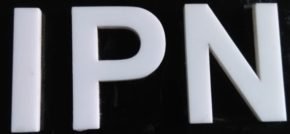Today’s Consumer Financial Protection Circular explains that when financial institutions cost shock overdraft charges, typically as a lot as $36, they could be breaking the legislation. The round supplies some examples of doubtless unlawful surprise overdraft charges, together with charging penalties on purchases made with a constructive stability. These overdraft charges occur when a financial institution shows that a customer has sufficient available funds to finish a debit card purchase at the time of the transaction, but the shopper is later charged an overdraft charge. Often, the monetary establishment relies on advanced back-office practices to justify charging the payment.
Earlier this year multiple banks introduced they have been eliminating overdraft fees or updating their insurance policies to be extra consumer pleasant. And, in latest months, a number of massive banks announced that they’re eliminating non-sufficient fund fees on their checking accounts. In January 2022, the CFPB launched an initiative to scrutinize back-end junk charges that price Americans billions of dollars.
Tens of thousands of people responded to a CFPB Request for Information with their tales and complaints about pointless charges in banking. Since then, the CFPB has taken motion to constrain “pay-to-pay” fees, and has introduced a rulemaking proceeding on credit card late charges. In the last year, the CFPB has also published a quantity of research reports on overdraft fees and an evaluation of school banking merchandise. An overdraft payment can turn out to be a surprise charge when the shopper doesn’t reasonably count on their actions to incur an overdraft charge.
The second is the apply of indiscriminately charging depositor fees to each one who deposits a examine that bounces. In September https://www.residencylor.com/pharmacy-letter-of-recommendation-professional-guide-to-follow/ 2022, the CFPB took motion towards Regions Bank for charging shock overdraft charges known as approved optimistic charges. As early as 2015 the CFPB, as properly as different federal regulators, together with the Federal Reserve, began cautioning financial establishments against charging certain kinds of authorized constructive charges, such as the ones used by Regions to unlawfully penalize customers.
Charging a charge to the depositor penalizes the one that could not anticipate the check would bounce, while doing nothing to deter the originator from writing dangerous checks. Consumers can submit complaints about overdraft and depositor fees, in addition to about different financial services or products, by visiting the CFPB’s website or by calling 411-CFPB . Employees who believe their corporations have violated federal client financial protection legal guidelines are inspired to send details about what they know to
For occasion, after the bank permits one debit card transaction when there’s enough money in the account, it nonetheless expenses a payment on that transaction later because of intervening transactions. – Today, the Consumer Financial Protection Bureau issued guidance about two junk payment practices that are probably unfair and unlawful under existing regulation. The first, shock overdraft charges, includes overdraft charges charged when consumers had sufficient cash in their account to cowl a debit cost at the time the financial institution authorizes it.
For instance, even when a person closely displays their account balances and thoroughly manages their spending to keep away from overdraft charges, they https://digitalcommons.csumb.edu/caps_thes_all/index.18.html will easily incur penalties when monetary institutions employ processes that are unintelligible or manipulative. The bulletin explains that indiscriminately charging these depositor fees, no matter circumstances, likely violates the Consumer Financial Protection Act. When a shopper deposits a examine that bounces, banks generally charge a payment to the depositor, normally in the range of $10 to $19. However, a person trying to deposit a check has no concept or management over whether or not the examine will clear, and typically, that particular person is the victim of examine fraud. In reality, there are many reasons deposited checks can bounce, and the most typical cause is that the check originator doesn’t manage to pay for out there in their account.
Regions is required to, among other consequences, reimburse customers all the funds it unlawfully charged since August 2018 and pay a $50 million penalty. Overdraft and depositor fees likely violate the Consumer Financial Protection Act prohibition on unfair practices when shoppers can’t moderately keep away from them. Today’s Consumer Financial Protection Circular on shock overdraft charges and the CFPB’s compliance bulletin on surprise depositor charges lay out when a monetary institution’s back-end penalties likely break the legislation. The CFPB has observed that financial establishments have began to compete extra in relation to fees.

